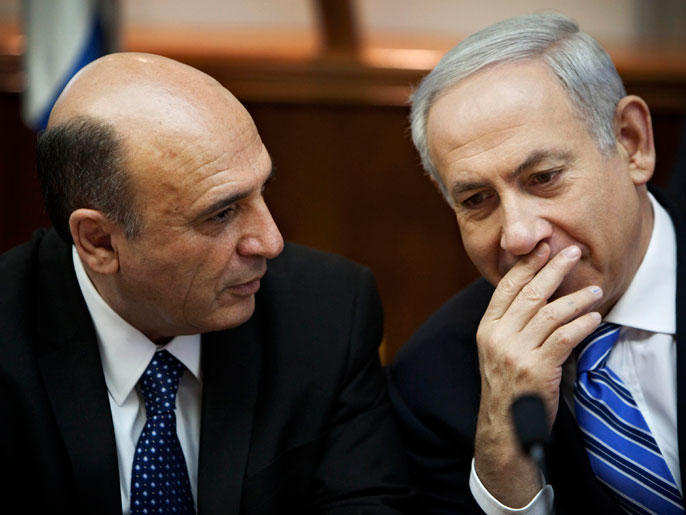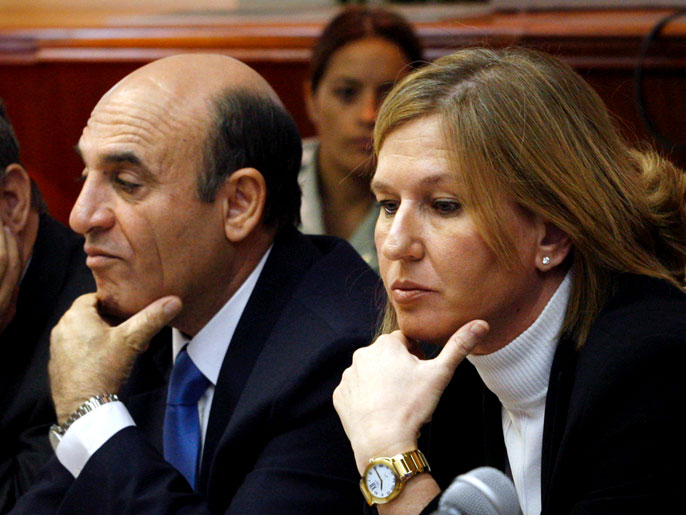Shaul Mofaz…encyclopedia of Defense Minister who fought in most of Israel's wars

Shaul Mofaz, Israeli Defense Minister and former Chief of Staff of the Israeli Army, was born in Iran in 1948. He served as an officer and participated in most of the Israeli wars that began in 1967 during his military career.party Likud Then comes the party advance partyElected Chairman and Member in 2012 israel parliament He chairs the Foreign Affairs and Security Committee.
Israeli Army Chief of Staff Herzi Halevi assigned him to lead an investigation team to investigate Israeli military and security failures after the Palestinian resistance launched Operation Al-Aqsa Flood against settlements around the Gaza Strip on October 7. In 2023, this caused divisions and controversy within the occupation government.
birth and growth
Shaul Mofaz was born on November 4, 1948 in the capital of Iran TehranIn 1957, he immigrated to Israel with his parents.
Learning and training
He received his basic education at the Jewish religious school in Eilat and continued his education in the city of Naharal before joining the Israeli Army Parachute Brigade in 1966 and training at the United States Marine Corps Command and Staff College in Virginia in 1984 Quantico.
From 1976 to 1978, he retired from the army and studied at Bar-Ilan University in Israel, earning a bachelor's degree in business administration.

Military tasks and positions
Since enlisting in the Army, Mofaz has served as a combat paratrooper in most of Israel's wars since the 1967 Six-Day War. sinai peninsulaHe subsequently rose to leadership positions starting with the 1973 war. He also served as commander of an elite paratrooper unit, as a Special Forces officer responsible for the rescue of Israeli hostages at Entebbe Airport, Uganda, in 1976, and as commander of an infantry brigade at Entebbe Airport, Uganda, in 1976. 1982 Lebanon War.
After graduating from the U.S. Marine Corps Command and Staff College in 1984, he briefly served as commander of the Israeli Army Officer School, then assumed command of the Paratrooper Brigade in 1986 and then Paratrooper Brigade Commander in 1988. During this time he was promoted to brigadier general and held the senior position of leading ground forces. From 1988 to 1990, he served as commander of the Army in the Galilee region and as commander of the Army in the West Bank from 1990 to 1992.
In 1994, he achieved the rank of Major General and served as Commander of Southern Command for two years, before serving as Chief of the Planning Division and Deputy Chief of the Administration of the Israeli Army General Staff from 1996 to 1997.
In 1998, Mofaz became the 16th Chief of Staff of the Israeli Army, and was subsequently promoted to Minister of Defense in the government in November 2002. Ariel Sharon.

political life
Mofaz, who belongs to the right-wing Likud party, ran for chairman of the party along with the most prominent contender after Prime Minister Ariel Sharon quit the party in 2005. Benjamin Netanyahu There was also Sylvain Shalom, but he quickly accepted Sharon's invitation to join his new party, Kadima, a breakaway party from Likud.
After the Kadima Party won the election, he served as Deputy Prime Minister and Minister of Transport and Road Safety from May 2006 to April 2009. Ehud Olmert.
In the February 2009 parliamentary elections, Kadima won 28 seats to Likud's 27, but then-party leader Tzipi Livni Negotiations to form a coalition government failed, leading Israeli President Shimon Peres to assign Likud leader Benjamin Netanyahu to form a coalition government, with Kadima boycotting the new government.
At the same time, Shaul Mofaz, who won a seat in parliament, chaired the Foreign Affairs and Security Committee and the Joint Defense Budget Committee, served as a member of other committees, and began to compete with the opposition leader for leadership. On March 27, 2012, he won with 61.7% of the vote to Tzipi Livni's 37.2%, who left Kadima to form a new party called the Movement Party. political party.
In May of the following year, the leader of the New Kadima Party announced that he would join the Netanyahu government coalition and said that not joining the government coalition led by Livni after the 2009 election was a historic mistake and reflected irresponsibility. He was eager to correct this. One mistake.

However, Kadima left the coalition government after about two months and saw major divisions in the January 2013 election results and gained only two seats in parliament.
Before the 2015 elections, Shaul Mofaz announced his retirement from politics after merger talks failed. Labor PartyAs for Kadima, it was dissolved by law after failing to win a seat in parliament.
The most prominent decisions and positions
The period when Shaul Mofaz held the two highest positions in his political and military career, namely, Army Chief of Staff and Defense Minister, was a period of accelerated Palestinian-Israeli conflict.
This period saw the beginning of the Second Intifada, the siege of late President Yasser Arafat, the military invasion of Jenin, a prisoner exchange with Lebanese Hezbollah, and other events.
But the most prominent of these incidents was the oversight of the so-called unilateral “disengagement plan” and the construction of the wall. Despite the reaction these events provoked from Israel, Palestine and the international community, Mofaz continues to staunchly defend his decision. question.
As a result, settlers in the Gaza Strip were evacuated in the second half of August 2005, while Israel's military presence in the Gaza Strip's border with Egypt remained, having withdrawn from four settlements and military bases in the northern West Bank in September 2005 . same year.
The plan grew out of the peace vision of then-US President George W. Bush, which he believed aimed at achieving a better security reality in the long term without making it conditional on Palestinian cooperation.
Construction of the separation wall near the Green Line in the West Bank started on June 23, 2002. The height of the separation wall is 4.5 to 9 meters, and the total length is 770 kilometers, of which about 142 kilometers are around Jerusalem. It's equipped with electric fences, lookout towers, cameras and equipment, and detects impacts on sand-strewn dirt roads.
The wall has resulted in Palestinians being segregated into closed areas, with work continuing despite a ruling by the International Court of Justice in The Hague declaring its construction illegal and requiring Israel to halt construction.
October 7 fault file
The failure of Israeli Army Chief of Staff Herzi Halevi to appoint Shaul Mofaz to lead the investigative team to investigate the events of October 7, 2023 has sparked controversy within the Israeli cabinet (the small security government) due to his views on the war critical stance, and demands to accelerate prisoner exchanges with Palestinian factions in the Gaza Strip. Gaza, also for his responsibility for the disengagement plan and the 2005 evacuation of settlers from the Gaza Strip.
Source link





